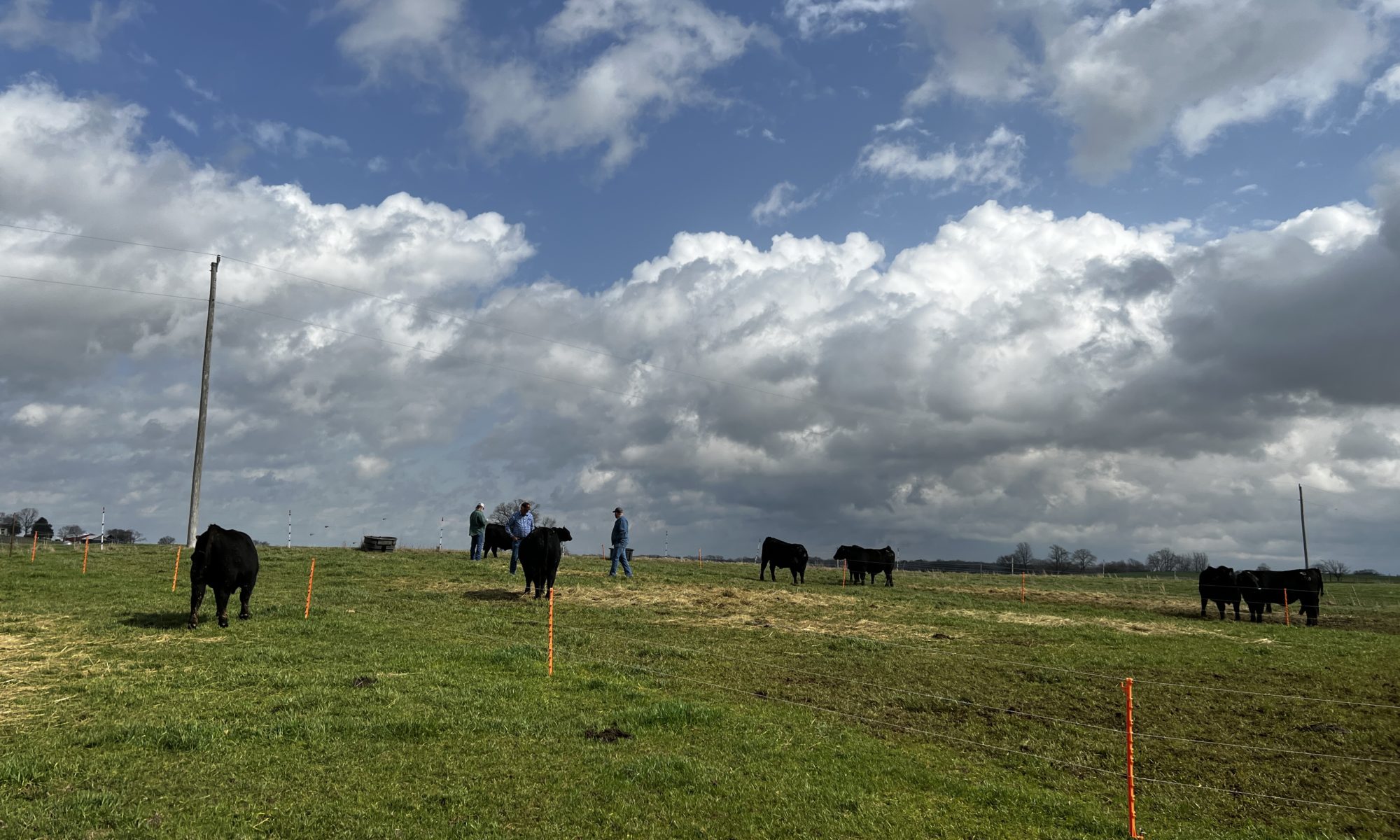

Dr. Saulo Zoca
Assistant Professor
Department of Animal Science
P: 931-486-2129
It doesn’t seem like that long ago that we were preparing for our Spring sale in January 2023. Time has flown by and we have started to take nominations for the University of Tennessee “Bull Development and Evaluation Program” class of 2023/2024. Bull nominations will be accepted from July 1st to July 28th, 2023. Our program is sponsored by UT Extension, UT AgResearch, and the Tennessee Beef Cattle Improvement Association. It is located at the Middle Tennessee AgResearch and Education Center in Spring Hill, TN.
A bull has far more genetic impact in the herd than any cow, because a bull will sire many calves every year, while a cow will generate only one calf. Further, on average, in a one bull herd, 87.5% of the genetics of your calf crop can be accounted for by the last three bulls purchased. Very simply, 50% of the calf genetics would come from the current bull, 25% from the dam’s sire, and 12.5% from the dam’s grandsire. Thus, selection of the next bull to be used has a great impact on the long-term goals of the operation.
The objective of the University of Tennessee “Bull Development and Evaluation Program” is to provide a reliable service for seed-stock producers to performance test their bulls where impartial performance data from each bull in the test is collected. Bulls are tested for post-wean gain where their performance and phenotypic data are recorded; also, all bulls have to pass a Breeding Soundness Exam (BSE) before they can enter our sale. Our BSE is performed by the UT Extension Veterinarian, Dr. Lew Strickland, who follows all the guidelines provided by the Society for Theriogenology. I would like to quote Dr. Strickland here and stress that “a veterinarian does not fail a bull, the bull fails itself,” meaning that when a BSE is performed, we are only assessing what is already there, and all we do is make note. Further, a bull that fails a BSE (including a deferred classification until that animal passes a BSE) will not help with your pregnancy rates.
The economic impact of a subfertile bull is great, as it can cause delay in pregnancy, decrease pregnancy rates, and consequently, decrease pounds of calves weaned in the next year. It is important to remember that we are talking about subfertile and not infertile bulls, which means cows will still get pregnant, but not as efficiently. In a world where profit margins are slim, a subfertile bull will leave a lot of pounds off the table.
At the conclusion of the evaluation period, we have a bull sale where bulls that have been through the performance test and passed a BSE are offered to producers. Our next sale is scheduled for January 11, 2024. Further, we are strong believers that structurally sound bulls can perform better and last longer in their herds; with that, all bulls have to be within set standard for foot angle and claw set. Consider bringing your bull to the University of Tennessee “Bull Development and Evaluation Program”. More information can be found at the Bull test website or through our Beef Cattle Specialists Dr. Saulo Zoca and Dr. Troy Rowan.